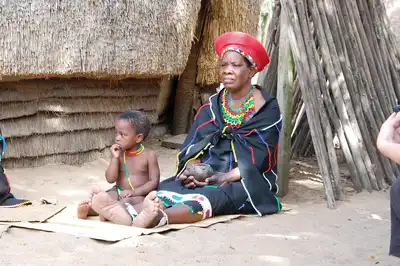Which Tribe Has The Highest Population In South Africa?

Racial Groups In South Africa
In South Africa, there are numerous racial groups. Apartheid’s racial classifications are still deeply ingrained in South African society, with people there still identifying themselves and one another as belonging to one of the four recognized race groupings (African, Whites, Coloureds and Indians). In the census, Statistics South Africa asks respondents to categorize themselves into one of five racial population categories. According to the 2011 census, there were 76.4% of Black South Africans, 9.1% of White South Africans, 8.9% of Colored South Africans, 2.5% of Indian South Africans, and 0.5% of Other/Unspecified South Africans.
Census In South Africa
Statistics In South Africa, there were five options for racial classification. The last option, “unspecified/other,” received very few replies, thus the findings were removed. For the other groups, the midyear estimates for 2010 were as follows: Indian/Asian 2.6%, White 10.2%, Colored 8.8%, and African 78.4%. Whites made up 22% of the population in South Africa in 1911, according to the country’s first census; by 1980, that number had dropped to 16%.
Tribes In Black South Africa
Although they identify as Black, indigenous South Africans, Africans, or Black people of South Africa, the bulk of the country’s population is not of a single cultural or linguistic background. The principal Southern Bantu-speaking ethnic groups within the group include the Zulu, Xhosa, Bapedi (North Sotho), Tswana, South Ndebele, Basotho (South Sotho), Venda, Tsonga, and Swazi. The natural spread of the Black South African ethnicity may also be seen in South Africa’s neighboring nations. The majority ethnic group of Lesotho is called the Basotho. The majority of people in Botswana are of the Tswana ethnic group. In Swaziland, the Swazi ethnic group makes up the bulk of the population.Southern Mozambique is home to the Tsonga ethnic group, also known as the Shangaan (Shangana, Shangane or Shangani).
- How to Sue Someone in South Africa?
- How Much Is a Liquor License in South Africa?
- How Long Does A Criminal Record Last In South Africa?
- How Is Women’s Day Celebrated In South Africa
- How Effective Is E-Commerce In South Africa?
- Who Started Amapiano In South Africa?
- Why Do We Celebrate Human Rights Day In South Africa?
Which Tribe Has The Highest Population In South Africa?
One of the most well-known tribes in Africa is the Zulu. Shakaland, the region recognized as the birthplace of the fabled chief Shaka Zulu, is one of the factors contributing to the tribe’s fame. Zulu are thought to number 11 million, making them the largest ethnic group in South Africa.
Life And Death Expectancy In South Africa
The average life expectancy at birth for South Africans in 2017 is 64 years, 66.7 years for females and 61.2 years for males. This is an increase from the around 55 years in 2002, before any significant action was taken to combat the HIV and Aids epidemic. An estimated 32.8 infant deaths (babies who pass away within the first year of life) occur for every 1,000 live births. The mortality rate for children under five is 42.4 per 1,000 live births. These figures have decreased since 2002, when they peaked at 48.1 for newborn mortality and 71.3 for under-five mortality. Statistics According to South Africa, the country’s total HIV prevalence rate is 12.6%. About 7 million persons worldwide were HIV positive in 2017. In adults aged 15 to 49, the HIV prevalence is about 18%.
Share This




